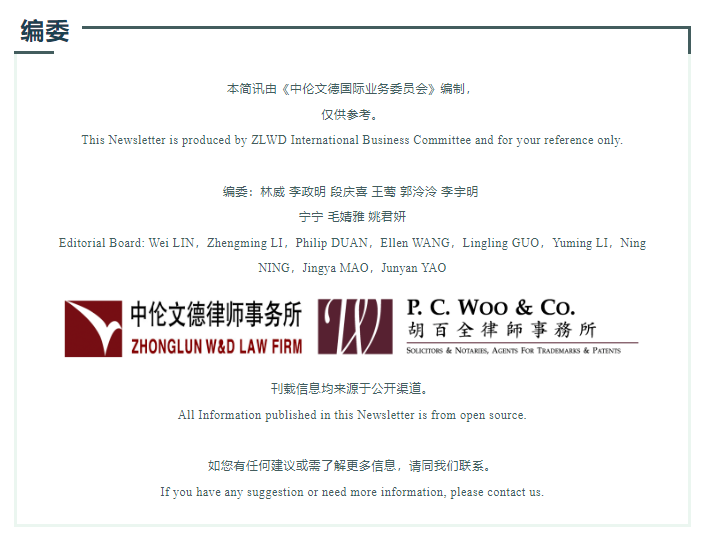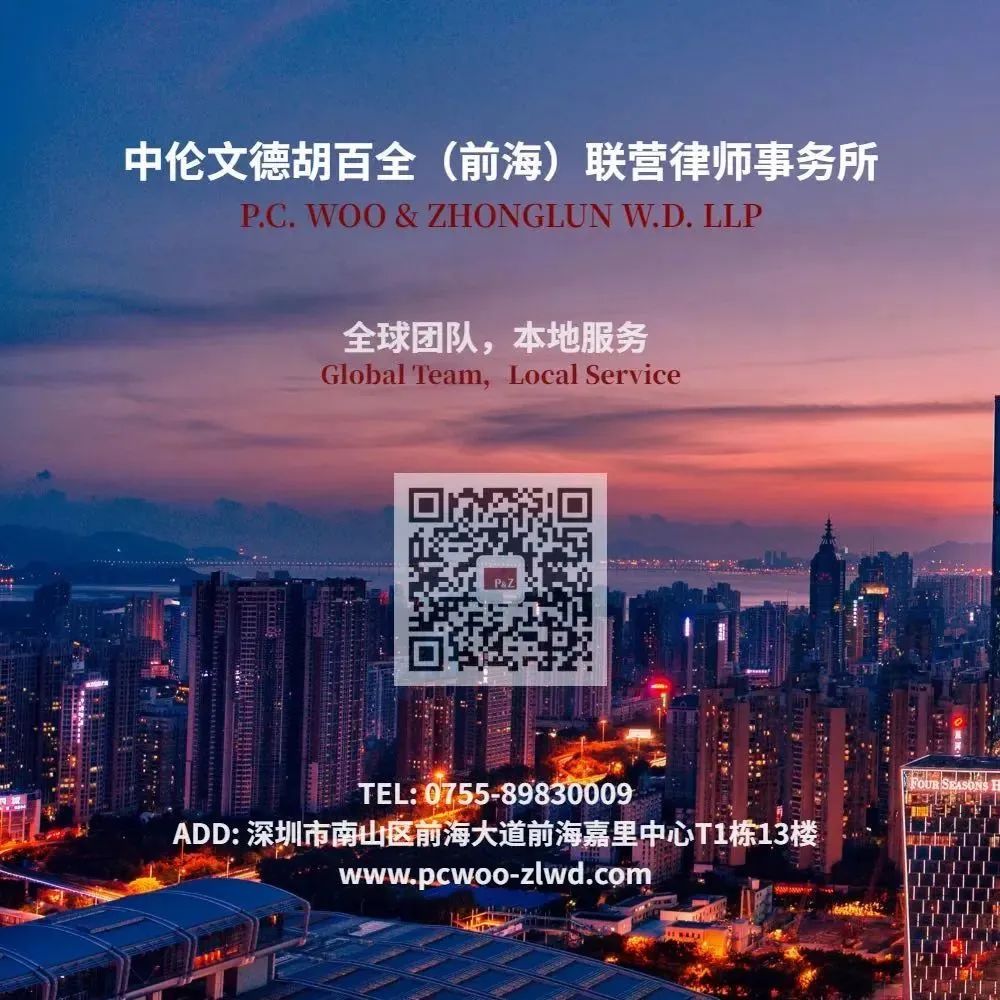
NEWS

NEWS

World Arbitration Update 2024 China Session Successfully Held at Beijing Arbitration Commission
From May 15 to 16, the World Arbitration Update 2024 (hereinafter referred to as "WAU 2024") China session was successfully held at the Beijing Arbitration Commission/Beijing International Arbitration Center (hereinafter referred to as "BAC"), co-hosted by BAC and World Arbitration Update LLC. The event was also broadcast live online globally.
Since its inception in 2021, the WAU conference has continuously introduced core and latest topics in international commercial arbitration and investment arbitration to the international community. Since the first conference, WAU has hosted 34 panel discussions with 186 speakers and over 1600 participants.
WAU 2024 marks the first time the conference was held in China, providing an international perspective and exchange opportunities on Chinese arbitration theory and practice. For the first time, the conference used AI voice recognition and translation technology, displaying real-time Chinese and English subtitles. This innovation not only provided a language barrier-free experience for speakers and audiences from around the world but also promoted the deep integration and exchange of diverse intellectual insights, supporting further innovation and development of AI voice recognition and translation technology in the field of arbitration.
The 2024 Edition of the Hong Kong International Arbitration Centre Administered Arbitration Rules to Take Effect on June 1
The Hong Kong International Arbitration Centre (hereinafter referred to as "HKIAC") releases the 2024 Edition of the HKIAC Administered Arbitration Rules (hereinafter referred to as "the Rules"), which will take effect on June 1, 2024.
Since their introduction on November 1, 2018, the 2018 Edition of the Rules has been highly acclaimed by users and widely regarded as a market-leading set of arbitration rules. Although the 2024 Edition of the Rules introduces several new provisions to reflect advancements in societal norms and technology, these changes are primarily improvements to the 2018 Edition. The overarching goal of the revisions is to enhance the time and cost efficiency of HKIAC arbitrations while maintaining the center's reputation for "light-touch" administration.
International Council for Commercial Arbitration Congress Held in Hong Kong
From 5 May to 8 May 2024, the International Council for Commercial Arbitration (ICCA) Congress was held in Hong Kong.
ICCA Congress is known as the "Olympic Congress" of the international arbitration and one of the most important platforms for exchange and interaction in the arbitration. It is the highest-level of international arbitration conference and largest-scale event in the field of international arbitration. ICCA 2024 HONGKONG was organised by the Hong Kong International Arbitration Centre ("HKIAC") with the generous support of the Hong Kong Special Administrative Region Government and the Department of Justice of Hong Kong.
Under the theme of "International Arbitration: A Human Endeavour", the Congress attracted more than 1,300 members of the arbitration community from around the world. It explored how international arbitration reflects and influences human behaviour, how it is shaping international arbitration, and the role of technology, in particular artificial intelligence, in international arbitration.
Rizhao Intermediate People's Court:
Cannot Determine the Existence of an Arbitration Clause or Agreement, and Arbitration Procedure Did Not Protect Basic Procedural Rights of the Parties, Violating Public Interest
Legal Basis:
"The Arbitration Law of the People's Republic of China"
Article 4
Where the disputing parties choose arbitration as a method for dispute resolution, both parties shall do so voluntarily and shall reach an arbitration agreement. Where there is no arbitration agreement and only one party makes an application, an arbitration commission shall not deal with the case.
"Civil Procedure Law of the People's Republic of China"
Article 248
With respect to an arbitral award of an arbitration organisation established pursuant to the law, where one party does not perform, the counterparty may apply to a People's Court which has jurisdiction for enforcement. The People's Court accepting the application shall carry out enforcement.
Where the respondent presents evidence to prove that the arbitral award falls under any of the following circumstances, upon examination and verification by the collegiate bench formed by the People's Court, a ruling on non-enforcement shall be made:
(3) The composition of the arbitral tribunal or the arbitration procedures is/are in violation of statutory procedures; ...
Case Description:
A loan contract dispute arose between Weihai Bank Co., Ltd. (hereinafter referred to as "Weihai Bank"), Pingdingshan Industrial and Trade Co., Ltd. (hereinafter referred to as "Industrial and Trade Company"), and Chen Moufa. On August 23, 2020, Chen Moufa signed a Loan Contract with Weihai Bank, borrowing 5000 yuan at an annual interest rate of 18%. The contract stipulated that in case of any disputes, they should first be resolved through negotiation. If negotiation failed, the dispute should be submitted to the Weihai Arbitration Commission for arbitration, with the arbitration award being final.
On September 27, 2023, the Industrial and Trade Company signed a Debt Assumption Agreement with Weihai Bank, voluntarily assuming joint and several liability for the remaining principal owed by Chen Moufa and 583 other individuals to Weihai Bank. This agreement stipulated that disputes should be resolved through arbitration by the Pingxiang Arbitration Commission.
On November 23, 2023, Weihai Bank applied for arbitration with the Pingxiang Arbitration Commission (hereinafter referred to as the "Arbitration Commission"), which handled the case under simplified procedures without a public hearing. On November 27, 2023, the Arbitration Commission sent relevant arbitration documents to Chen Moufa via SMS, with the status indicating that the message was sent. On December 7, 2023, the Arbitration Commission issued the Arbitration Award No. G3258 (2023) (hereinafter referred to as the "Arbitration Award"), ordering Chen Moufa and 49 others, along with the Industrial and Trade Company, to repay the remaining principal of 336,248.04 yuan to Weihai Bank. Subsequently, Weihai Bank applied to the Rizhao Intermediate People's Court (hereinafter referred to as the "Court") for enforcement of the arbitration award.
Court's View:
The Court held that according to Article 4 of the Arbitration Law of the People's Republic of China, disputes resolved through arbitration require mutual consent and an arbitration agreement. Without an arbitration agreement, an arbitration commission will not accept the application for arbitration. In this case, the Loan Contract between Weihai Bank and Chen Moufa stipulated that disputes should be arbitrated by the Weihai Arbitration Commission, while the Debt Assumption Agreement with the Industrial and Trade Company stipulated arbitration by the Pingxiang Arbitration Commission. The Debt Assumption Agreement's new arbitration clause indicated that the Industrial and Trade Company was not bound by the original arbitration clause in the Loan Contract. Therefore, the dispute resolution institutions should be determined according to both the Loan Contract and the Debt Assumption Agreement. The Pingxiang Arbitration Commission’s decision to arbitrate and rule on Chen Moufa’s responsibility without his consent violated legal provisions.
Additionally, the arbitration commission must protect the basic procedural rights of the parties according to the relevant provisions of the Arbitration Law and Civil Procedure Law. In this case, the arbitration institution sent a link via SMS requiring the respondent to log in online to review the documents, but it did not confirm whether the respondent received them, thus considering it as effective service. This clearly did not safeguard the basic procedural rights of the parties involved in the arbitration, constituting a violation of the "arbitration procedure violates statutory procedures" as stipulated in Article 248, Paragraph 2, Item 3 of the Civil Procedure Law of the People's Republic of China.
In conclusion, the Court concluded that the evidence submitted by the applicant and the facts ascertained by the arbitration could not prove that both parties had signed an arbitration clause or agreement, and the arbitration procedure did not protect the basic procedural rights of the parties. According to Article 157, Paragraph 1, Item 11 and Article 248, Paragraph 3 of the Civil Procedure Law of the People's Republic of China, the court ruled not to enforce the Arbitration Award No. G3258 (2023) issued by the Pingxiang Arbitration Commission.
High Court of Singapore:
Arbitration Clause Cannot Stay Proceedings Due to Indivisibility of the Subject Matter
Case Description:
Moveon Technologies Pte Ltd (hereinafter referred to as "MTPL") is a company registered in Singapore. It jointly established Crystal-Moveon Technologies Pte Ltd (hereinafter referred to as "CMT") with Zhejiang Crystal-Optech Co., Ltd. (hereinafter referred to as "COC"), registered in China, for specific commercial activities. Over time, the parties decided to terminate the joint venture, resulting in disputes over equipment costs, employee salaries, and other related expenses. MTPL filed an action in the High Court of Singapore (hereinafter referred to as the "Court") seeking reimbursement from CMT for the cost of equipment, employees' salaries and other related costs incurred by CMT on behalf of the Joint Venture. According to MTPL, during the period from January 2022 to May 2022, it exchanged various emails with CMT in which CMT had agreed to pay MTPL for the various expenses underlying the claims for capital expenditure.
CMT contends that under the Equipment Transfer Agreement (hereinafter referred to as "ETA"), disputes concerning the equipment, specifically the AH equipment, should be resolved through arbitration. CMT also sought to stay MTPL's claims for the remaining equipment costs. CMT referred to Clause 9.2 of the ETA, which stipulates that equipment transfers outside the ETA should be resolved by a "written supplementary agreement" signed by both parties, which would have the same legal effect as the ETA. CMT applied for a stay of proceedings under Section 6 of the Arbitration Act, arguing that the parties had agreed to submit such disputes to arbitration under the ETA.
MTPL acknowledges that the ETA contains an arbitration clause and that the AH equipment claims fall within the scope of the ETA arbitration agreement. However, MTPL disagrees with CMT's interpretation of Clause 9.2, arguing that it does not extend to all claims. MTPL asserts that the parts not covered by the arbitration clause and the entire subject matter form a singular dispute, and staying only part of it would result in overlapping jurisdictions.
Court's View:
According to Section 6 of the Arbitration Act 2001, a court will grant a stay of proceedings to refer the dispute to arbitration if the following conditions are met: (a) there is a valid arbitration agreement between the parties to the proceedings; (b) the dispute (or part of it) falls within the scope of the arbitration agreement; (c) the applicant for the stay has provided and served notice of its intention to raise a plea or objection and has not taken any other steps in the proceedings; (d) the applicant is ready and willing to arbitrate the dispute; and (e) there is no "sufficient reason" not to refer the dispute to arbitration.
In this case, the court determined that the ETA should only cover the AH equipment. Clause 9.2 indicates that only when the parties reach a further written agreement does it have the same legal effect as the ETA. Since no further written agreement was reached, the equipment not covered by the ETA cannot be included under the arbitration clause. The court pointed out that under Section 6 of the Arbitration Act, the respondent merely needs to assert that there is a dispute or deny the claimant's claim without providing conclusive evidence. The appellate court in the Tjong Very Sumito case held that an applicant for a stay only needs to assert the existence of a dispute to obtain a decision referring the matter to arbitration unless the respondent's liability is very clear. The court believed this approach was applicable to domestic arbitration in this case.
The Court reviewed MTPL's reasons for excluding arbitration in light of the facts. The court confirmed that the claims for the AH equipment and the remaining equipment costs were related to the joint venture between MTPL and COC. All claims were based on equipment purchased by MTPL for the joint venture. The AH equipment claims and the remaining equipment cost claims shared a common factual basis and factual connections. These claims were all related to MTPL's capital expenditures for the joint venture. If the dispute over the AH equipment was submitted to arbitration, the potential arbitration award would overlap with the litigation concerning the remaining equipment, affecting the fairness and effective resolution of the case. The judge also noted that the parties did not anticipate potential jurisdictional conflicts and did not reach the supplementary agreement described in Clause 9.2. Thus, the arbitration agreement in this case remained limited to the AH equipment, and the parties preferred a single dispute resolution mechanism when the contract was concluded. Accordingly, the court found MTPL's reasons for excluding arbitration jurisdiction sufficient and exercised its discretion under Section 6 of the Arbitration Act to reject CMT's application to stay the proceedings.
In conclusion, the High Court of Singapore ruled that MTPL had provided sufficient reasons to refuse the stay of proceedings, allowing all claims to be resolved together in court.


